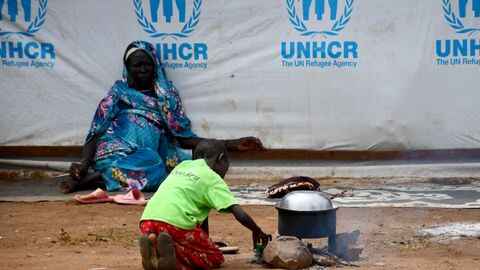According to the assessment, 57% of the population will experience severe food insecurity, with small children at high risk of malnutrition and famine and South Sudanese escaping Sudan.
According to the most recent Integrated Food Security Phase Classification (IPC) study, over half of South Sudan’s population would experience severe food insecurity through the lean season that begins in April of next year.
With South Sudanese civilians escaping the fighting in neighboring Sudan and small children predicted to have some of the greatest rates of hunger and malnutrition, the report’s findings, which was made public on Monday, indicates that 57% of the population will experience acute food insecurity.
Hunger in the world’s youngest country is mostly caused by conflict and climate issues, according to Mary-Ellen McGroarty, country director and UN World Food Programme (WFP) representative in South Sudan.
“The root causes of hunger must be addressed if South Sudan is to achieve zero hunger; communities require stability, peace, and opportunities to establish or restore livelihoods that will enable them to withstand shocks in the future.” In a joint statement released by the United Nations Children’s Fund (UNICEF), the Food and Agriculture Organization (FAO), and the World Food Program (WFP), McGroarty said.
Children who could suffer from malnutrition
About 1.4 million people are impacted by flooding in more than counties across the nation, according to a statement released this month by the UN Office for the Coordination of Humanitarian Affairs (OCHA).
After protracted drought seasons, continuous flooding, and ongoing conflict, many communities in South Sudan are predicted to face starvation.
According to the statement, the number of children at danger of malnutrition has increased from 1.65 million to over 2.1 million.
Due to their continued lack of access to sanitary facilities and safe drinking water, children are visiting feeding centers several times a year. It stated that one of the main causes of their malnutrition is illness.
Hamida Lasseko, UNICEF’s representative in South Sudan, expressed great concern that unless efforts to prevent malnutrition by addressing its underlying causes are increased and immediate nutrition support is provided to treat malnutrition among children who are at higher risk of death, the number of mothers and children at risk of malnutrition will continue to rise.






